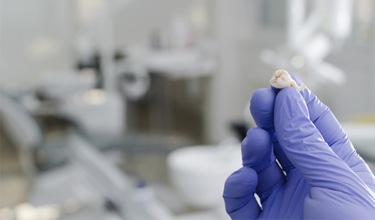Tooth Extractions Carrollton
When a Tooth Extraction Means a Healthier Smile
At DD Family Dentistry of Carrollton, Dr. Durga always does everything in her power to save your natural teeth. However, in some cases, tooth extraction is the best course of action to get you out of pain and improve your oral health. Our compassionate, experienced team knows how intimidating extractions can be and always puts your comfort first, from beginning to end. We also offer multiple sedation options to make the procedure stress-free. If you think you may need a tooth extraction in Carrollton, don’t hesitate to contact us so we can create a treatment plan that’s right for you!
Why Choose DD Family Dentistry of Carrollton for Tooth Extractions?
- Trusted Tooth Replacement Solutions
- Sedation Dentistry Available
- Your Dental Benefits Maximized
Do I Need a Tooth Extraction?

We often recommend a tooth extraction in the following cases:
- Wisdom teeth that are at risk of causing other problems
- Before orthodontic treatment (if overcrowding is an issue)
- If most of your tooth’s structure has been damaged by a cavity or fracture and it can no longer support a dental filling or crown
- As preparation for dentures
- In late stages of gum disease where the teeth have become loose
Different Types of Tooth Extractions
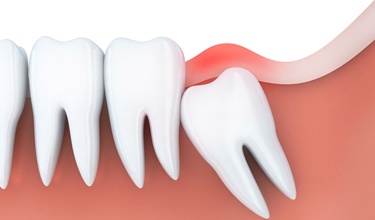
There are multiple kinds of extractions for different situations. During your consultation with Dr. Durga, she’ll discuss which one is right for you as well as any replacement procedures that may be helpful such as a dental implant, bridge, or denture.
Wisdom Tooth Extraction

This is one of the most common types of extractions because most people don’t have the space to accommodate their wisdom teeth. Removing them is a proactive way to prevent serious problems such as cysts in the jaws, sinus problems, infections, and alignment problems.
In some cases, removing the wisdom teeth requires incisions to be made in the gums or breaking the wisdom teeth into multiple pieces. However, one of our sedation options will ensure you’re comfortable throughout the procedure.
Multiple Tooth Extractions
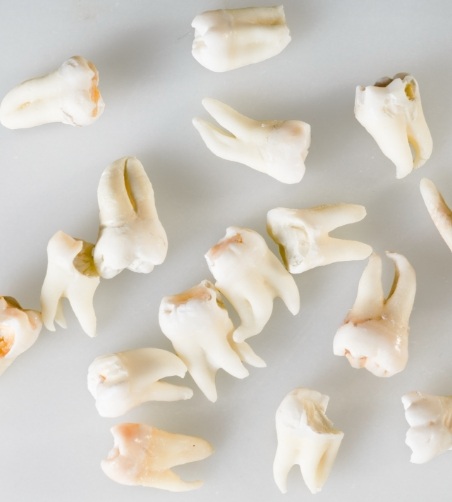
Unfortunately, many factors can contribute to tooth loss such as extensive cavities, genetics, trauma, and overcrowding. Oftentimes, taking out more than one tooth at a time is necessary to help you move forward with a healthier smile.
Extraction Site Preservation
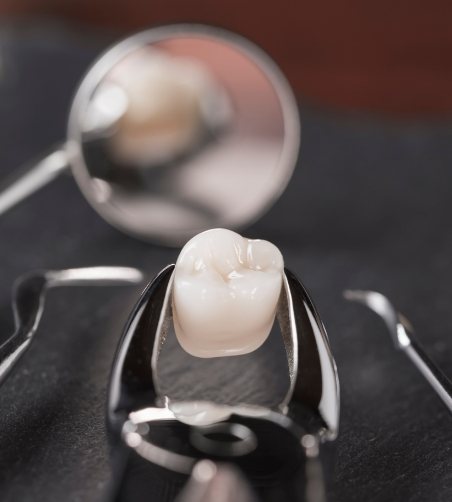
When possible, we recommend dental implants as the best way to replace missing teeth. Since implants require a strong, healthy jawbone for support, it’s helpful to do extraction site preservation at the same time we remove a tooth. This procedure involves strengthening the jawbone with a grafting material to prevent it from becoming too thin or weak to support an implant.
Post-Operative Care After Tooth Extractions
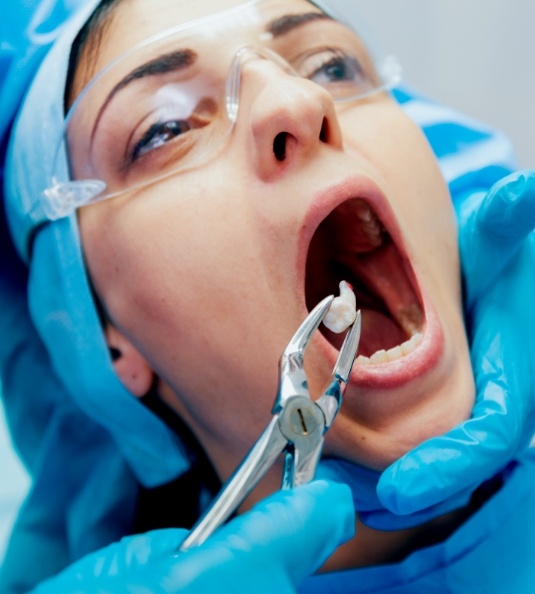
Our team will spend time reviewing the best way to care for your extraction area at home to promote healing and help you recover as quickly as possible. Here are some general instructions we’ll provide:
- We’ll discuss pain medication at your visit – be sure to take it as directed
- It’s a good idea to take 2-3 days off from work or school
- Avoid using a straw for the first 2-3 days
- Don’t eat any hard, crunchy, or tough foods for the first 3-5 days, and chew on the opposite side of your mouth
- Avoid carbonated or hot beverages
- Maintain your oral hygiene habits, but don’t directly brush the extraction area itself
Finally, you can call us any time with questions or concerns. As a dentist, your well-being is our #1 priority, and we want to make sure your recovery process goes well!
Understanding the Cost of Tooth Extractions
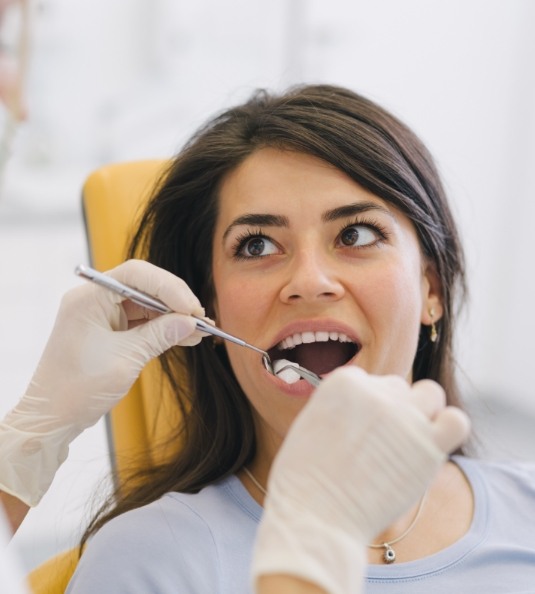
You may already believe that a tooth extraction is a good idea. That said, you likely have concerns about the treatment’s cost. The truth, however, is that Dr. Durga can’t set a price for this service beforehand; the cost of tooth extraction varies from patient to patient. Still, you can rest assured that we will explain the pricing during your initial consultation. That way, you’ll know what expenses to expect and how to make care affordable. In the meantime, feel free to call our office if you have any other questions — we’re always happy to help!
Factors That Can Affect Tooth Extraction Cost
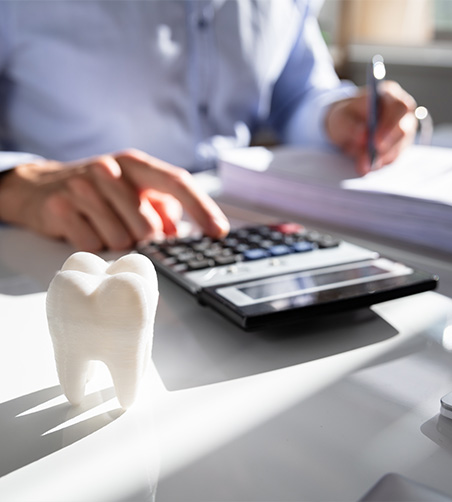
To give you a treatment estimate, our team must first assess the tooth or teeth in question. In particular, we’ll look at several factors influencing the overall price. These include the following:
- Tooth Location & Type: Whether you need to have a front or back tooth extracted will affect the cost. Similarly, the type (molar, bicuspid, incisor, etc.) also impacts price.
- Treatment Complexity: Depending on your issue’s severity, we’ll either perform a simple extraction or a surgical one. The latter costs more than the former due to being more complex.
- Follow-Up Procedures: As you’d expect, you’ll pay more for treatment if you follow up an extraction with a restoration (i.e., dental bridge, dental implant, denture, etc.). You could also forgo a replacement, which would lead to long-term health issues.
Does Dental Insurance Cover Tooth Extractions?

Simply put, dental insurance usually covers the cost of tooth extraction. Of course, the coverage amount will depend on your provider and plan.
Most dental insurance plans cover around 50% of an extraction’s cost, assuming you meet the deductible. (This percentage also includes wisdom teeth.) However, your insurance plan might have limits covering only a certain number of teeth or a waiting period before the coverage kicks in. As such, you must confirm things with your insurance company first. Thankfully, we can help with this matter, too!
How to Make Tooth Extractions Affordable
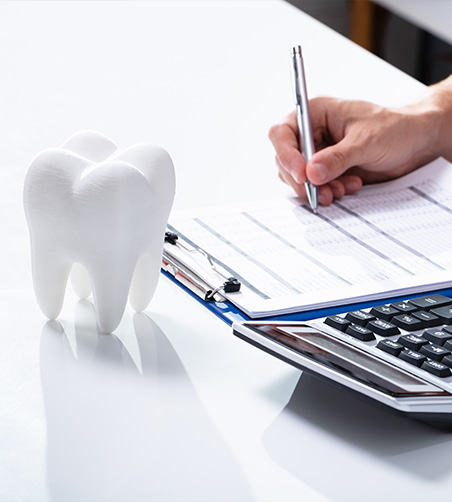
If you don’t have dental insurance, don’t worry — there are other ways to make extractions affordable! In fact, our office allows for options like:
- Membership Savings Plan: For an affordable monthly fee, you can join our practice’s membership savings plan for discounted dental care.
- Flexible Financing: We work with third-party financier CareCredit to help patients afford treatment. Thanks to this service, you can make monthly payments for your procedure at a rate that works for you.
As you can see, our team is ready to assist you with tooth extractions. More than that, we’ll help you navigate this treatment’s cost! Therefore, don’t hesitate to call us and schedule a visit.
Tooth Extractions FAQs
Does getting a tooth extracted hurt?
We understand that many patients are hesitant to complete dental treatments because of the fear of discomfort. However, treatments like tooth extractions are not as difficult or uncomfortable to complete as you may have heard, especially in the media. For example, your mouth is always numbed thoroughly so no sensations are felt during treatment, whether we are removing a single tooth, multiple teeth, or wisdom teeth. Like with any oral surgery, it is normal to experience some soreness and mild discomfort after the fact. These side effects can be easily mitigated with basic aftercare tips. Do not be afraid to contact us if you feel your symptoms are not improving.
Can I leave the space empty after a tooth extraction?
It doesn’t matter which tooth is getting pulled; you should start thinking about getting it replaced soon after. Even if you have a tooth removed that does not make up a significant part of your smile, it can still have long-term implications for your oral and overall health. The fact is that teeth do more than give you the confidence to smile. They also help break down and process food effectively for healthy digestion. Additionally, teeth allow you to enunciate many words clearly. Even one missing tooth can lead to increased difficulty chewing and speaking, especially after many years. The best thing you can do after your mouth has healed is schedule an appointment to discuss your tooth replacement options.
Can I smoke after getting a tooth extracted?
Tobacco products, whether they are cigars, cigarettes, or even e-cigarettes/vaporizers, can delay the healing of your treatment area. For that reason, you should not smoke immediately after your extraction. We recommend abstaining from smoking for at least five days following your procedure. It would be ideal if you avoided tobacco products for two weeks. If you have had trouble quitting tobacco in the past, please speak with us. We won’t judge you for your habits; our goal is to help you heal as quickly as possible, and knowing your habits now allows us to do that better.
What are my options for replacing an extracted tooth?
You have a few options available to you based on how many teeth you intend to replace. One of the most common is dental bridges, which rely on adjacent teeth to be held in place. For more severe tooth loss (or if you were missing most teeth to begin with), a full or partial denture can offer a comprehensive solution. Finally, there are dental implants, which can last for 30+ years, restore your biting force dramatically, and look and feel natural. The decision you make will ultimately be up to you and your dentist.

